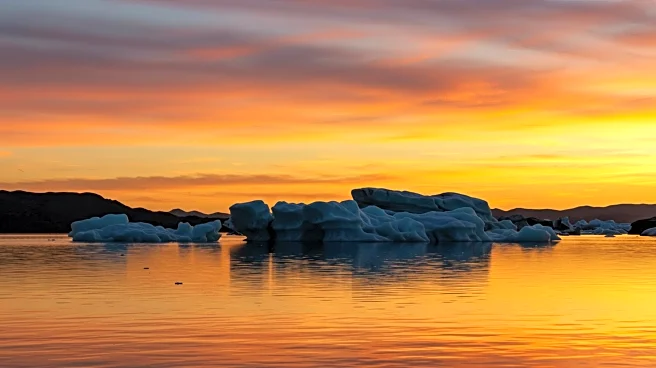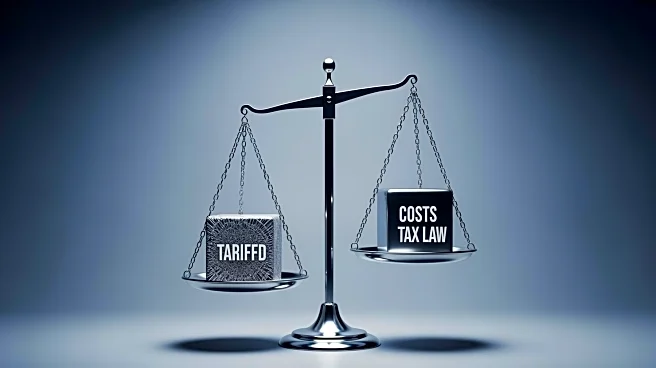What's Happening?
In Europe, particularly in Switzerland, glaciers are melting at unprecedented rates due to climate change. The Morteratsch Glacier, located nearly 7,000 feet above sea level, is experiencing significant ice loss, making it difficult for researchers to conduct studies. Leo Hösli, a doctoral researcher, has observed the rapid melting and instability of ice caves, which have become too dangerous to enter. This situation underscores the severe impact of rising temperatures on glacial environments, threatening their existence and altering the landscape.
Why It's Important?
The melting of European glaciers serves as a critical indicator of the accelerating effects of climate change. Glaciers are vital for maintaining ecological balance, providing freshwater resources, and supporting biodiversity. Their decline poses significant risks to local communities, agriculture, and tourism industries that rely on glacial landscapes. The situation calls for urgent action to mitigate climate change impacts, emphasizing the need for global cooperation in reducing carbon emissions and implementing sustainable practices. The loss of glaciers also highlights the importance of scientific research in understanding and addressing environmental challenges.
What's Next?
As glaciers continue to melt, European countries may need to implement more aggressive climate policies and invest in renewable energy sources to reduce greenhouse gas emissions. There could be increased funding for scientific research to monitor glacial changes and develop strategies for adaptation. Additionally, international collaboration may be necessary to address cross-border environmental issues and share best practices for climate resilience. The focus on preserving glacial environments could lead to new conservation initiatives and educational programs aimed at raising awareness about the importance of protecting natural resources.
Beyond the Headlines
The melting of glaciers is not only an environmental issue but also a cultural and historical one. Glaciers have shaped the identity and heritage of many European regions, influencing art, literature, and traditions. Their loss could lead to changes in cultural practices and tourism patterns, as communities adapt to new realities. The situation also raises ethical questions about the responsibility of current generations to protect the environment for future ones, highlighting the need for sustainable development and intergenerational equity.









